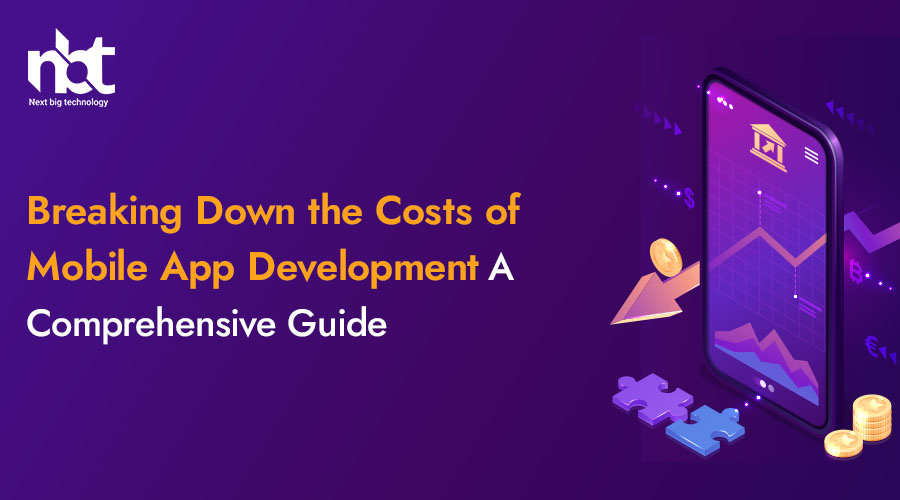Table of Contents
Introduction
A. Definition of Mobile App Development
Mobile app development involves the process of creating software applications for mobile devices. This can range from simple apps with basic functionalities to complex, feature-rich applications.
B. Significance of Understanding Costs
Understanding the costs associated with mobile app development is essential for businesses and entrepreneurs planning to enter the app market. It enables realistic budgeting, efficient resource allocation, and better decision-making throughout the development lifecycle.
Factors Influencing Mobile App Development Costs
A. App Complexity
The complexity of an app significantly impacts development costs. Simple apps with basic features will cost less than complex applications requiring advanced functionalities.
B. Platform (iOS, Android, Cross-Platform)
Choosing the platform(s) for app deployment affects costs. Developing for both iOS and Android or opting for cross-platform development has different cost implications.
C. Design Complexity
A well-designed app enhances user experience but may increase development costs. Balancing design complexity with budget considerations is crucial.
D. Features and Functionality
The more features an app incorporates, the higher the development costs. Prioritizing essential features can help manage expenses.
E. Integration with Third-Party Services
Integrating third-party services, such as payment gateways or social media APIs, adds to development costs. Careful consideration of integrations is necessary.
Development Team and Location
A. Hiring In-House vs. Outsourcing
Deciding between an in-house development team and outsourcing impacts costs and development speed. Outsourcing to regions with lower labor costs can be a cost-effective solution.
B. Impact of Geographical Location on Costs
The location of the development team affects costs due to varying labor rates. Understanding these geographical nuances is crucial for budget planning.
Development Process Stages
A. Planning and Analysis
Thorough planning and analysis are crucial for cost control. Identifying project requirements and potential challenges at this stage can prevent costly revisions later.
B. Design
Investing in a visually appealing design is important, but it’s essential to balance aesthetics with budget constraints.
C. Development
The actual coding and creation of the app constitute the development stage. Efficient coding practices contribute to cost savings.
D. Testing
Testing is vital for ensuring a bug-free and reliable app. Budgeting for comprehensive testing prevents post-launch issues.
E. Deployment and Maintenance
Launching the app is just the beginning. Ongoing maintenance and updates contribute to long-term costs.
Hidden Costs in Mobile App Development
A. Post-Launch Marketing and Support
Marketing and providing customer support after the app’s launch incur additional costs. Budgeting for post-launch activities is often overlooked.
B. Updates and Maintenance
Regular updates are essential for app performance and security. Failing to account for ongoing maintenance can result in unforeseen expenses.
C. App Security Measures
Investing in robust security measures is imperative. Ignoring security can lead to costly data breaches and damage to the app’s reputation.
Strategies to Optimize Mobile App Development Costs
A. MVP (Minimum Viable Product) Approach
Developing a Minimum Viable Product allows for cost-effective testing of app concepts before investing in full-scale development.
B. Agile Development Methodology
Agile development promotes flexibility and iterative progress, reducing the risk of costly mistakes.
C. Efficient Resource Utilization
Optimizing the use of resources, including time and talent, helps control costs without compromising quality.
Case Studies
A. Successful Apps with Cost-Effective Development
Examining successful apps with efficient development processes provides valuable insights for cost-conscious entrepreneurs.
B. Learning from Mistakes: Costly Development Examples
Analyzing examples of costly app development mistakes helps developers and businesses avoid similar pitfalls.
Industry Trends Impacting Costs
A. Emerging Technologies
New technologies can influence development costs. Staying informed about emerging trends helps in strategic planning.
B. Market Demands and User Expectations
Adapting to market demands and meeting user expectations may require additional investments. Understanding these trends is essential for long-term success.
Future Outlook
A. Evolving Development Technologies
Anticipating changes in development technologies helps businesses stay ahead and adapt their strategies accordingly.
B. Predictions on Future Cost Trends
Predicting future cost trends enables better planning and preparation for upcoming challenges in the mobile app development landscape.
Conclusion
In conclusion, breaking down the costs of mobile app development is crucial for businesses aiming to create successful applications. By understanding the various factors influencing costs, exploring hidden expenses, and implementing optimization strategies, developers and entrepreneurs can navigate the complexities of app development more effectively.
Thanks for reading our post “Breaking Down the Costs of Mobile App Development: A Comprehensive Guide”. Please connect with us to know more about The Growing Demand for Enterprise.






















